Denver, CO – November 2019 marked another successful Super Computing conference, but for SGCI and the Omnibond CloudyCluster Team, it was even more special as 5 teams competed at the Cloud HPC Hackathon at SC19. Teams consisted of students from universities at all levels, ranging from Freshman to Ph.D. candidates working together under pressure of the clock and pop-up challenges over a 44 hour period.
Schools represented at this year’s event included locals from University of Denver and University of Colorado. Faculty and advisors brought teams from Mississippi Valley State University(MVSU) and University of Texas at Austin. Mentors included Linda Hayden of Elizabeth City State University, Christopher Lanclos from MVSU, Je’aime Powell from SGCI and TACC, Alexander Nolte from SGCI and University of Tartu in Estonia and team members from Omnibond, NCAR, and Intel supported the students as they battled their way through the hack.
The teams were initially given a crash course on HPC in the cloud on Google Cloud Platform(GCP) with CloudyCluster, which was a requirement to be incorporated into their project objectives. Students learned and adapted quickly as they took cues from ideas pitched by their mentors, and ultimately formed their own teams and decided on their final objectives. Within 3 hours of Day 1, they presented their project ideas, their team members and created a team cheer.
There was also a nice article written about the hack on HPCWire
The teams had successful outcomes based on their primary ideation and executed to amazing levels given the constant pull of distraction of SC19, just a few blocks away at the convention center. Some of the project idea highlights included the following:
Team SMS2CCQ
Team SMS2CCQ – who built an interface using CloudyCluster APIs to connect to and communicate with their cluster running on GCP. This project leveraged the 3rd party app Twilio and the meta-scheduler CCQ which is a part of CloudyCluster, that would allow users to quickly send an SMS message to start, get the status of and if needed delete HPC jobs running in the cloud! This was a huge hit with all of the teams and was highly successful across the application platforms.
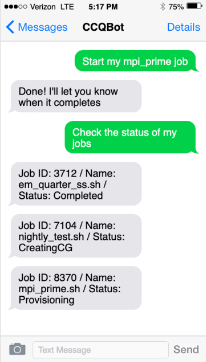
Team Photobombers
Team Photobombers – built a Malware Analysis Gateway project that would leverage the computing power, shared file systems and machine learning in a scalable cloud-based HPC cluster. They developed a malware analysis gateway that provides extracted data from submitted executable samples with the intent of identifying and terminating malware from known code content.

Team LambdaUI
Team LambdaUI – built 2 user interfaces to execute, manage and monitor jobs on CloudyCluster one via Jupyter Lab and one via Flask. The objective was to extend the CloudyCluster commands and function attributes to a UI broadening access to more users while saving time and moving from a terminal based application to a GUI experience. One of the most impressive things about Team LambdaUI was that they not only succeeded in their goal, but they also did it with only 2 team members and had to take a break to take a semester exam!
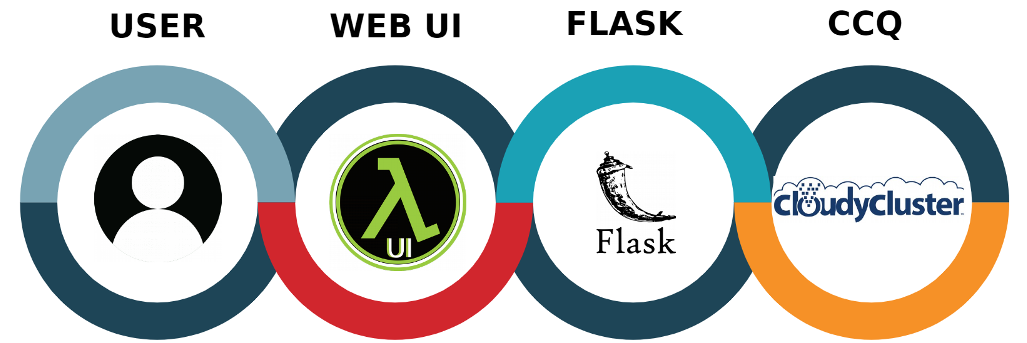
Team Sacred Chord
Team Sacred Chord – worked on developing a Cloud hosted real-time data service for the Geo-sciences community. Because the Science field is full of very specialized professionals who don’t always have the time, knowledge, or resources to easily understand a programming language or work inside an IDE or more complex interfacing to submit data for computation and visualization output. Their goal was to design a hosted interface that allows scientists to easily submit data in the form of a CSV file and receive structured visual output as well as a short summary statistical overview of the data.
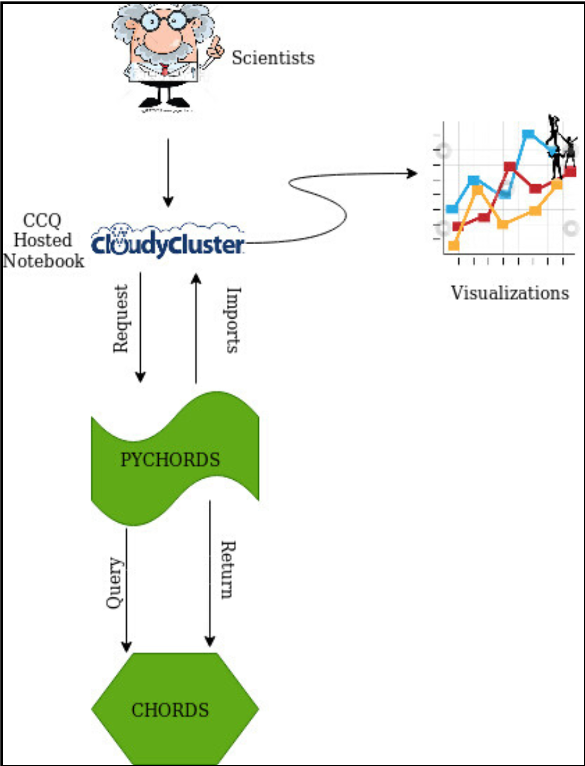
Team Deep Dish Data
Team Deep Dish Data - Project was taking an Array of Things (AoT) - a networked urban sensor project of sensors spread across Chicago used to measure: temperature, humidity, quantity of particulate matter, traffic, ect. and provide the public with actionable data. A web interface would make the massive amount of data accessible, easy to understand, and useful.
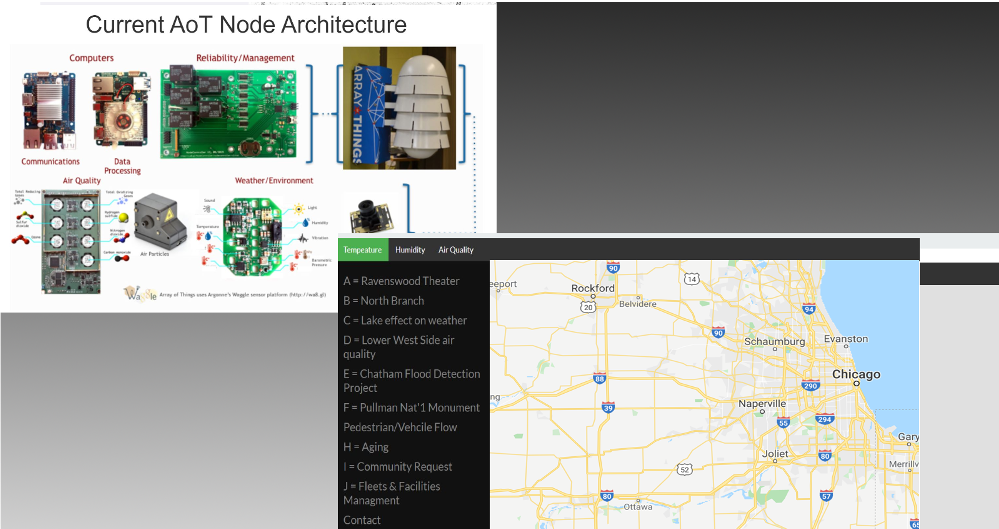
Congratulations to all of the participants and thank you for participating and supporting this year’s hackathon!
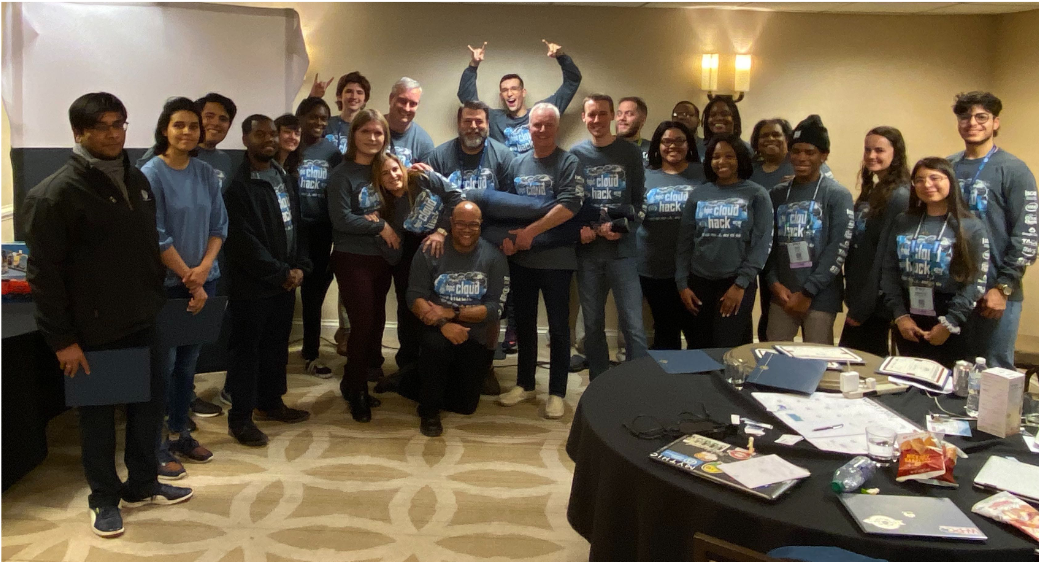
We are excited to see how these project progressed through the hack. We additionally look forward to continuing to support hackathons such as this with CloudyCluster in the future.
If you have ideas or comments please reach out to sales@cloudycluster.com.
